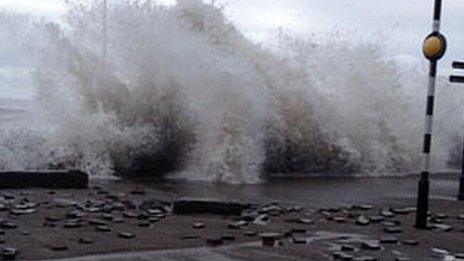Sea level threat to force retreat of communities in Wales
- Published
Councils across Wales are now planning for a "managed retreat"
Coastal communities in Wales face being abandoned as rising sea levels mean the cost of maintaining defences can no longer be justified, BBC Wales can reveal.
A 2010 report, external found £135m must be spent annually on defences by 2035 just to maintain the current level of risk.
Councils across Wales are now planning for a "managed retreat".
Natural Resources Minister Alun Davies said it was not currently part of Welsh government policy.
But BBC Wales' Week In Week Out has found local authorities around Wales are already making preparations.
Fairbourne, in Gwynedd, is expected to enter into managed retreat in 2025. It is one of around 50 communities listed as being in such areas in the next 45 years.
More than 400 homes are expected to be abandoned in the village by 2055 as part of that policy.
Resident Sonia Norton, 83, said: "Ten years will probably see me out and it's not good for the future, for Fairbourne as a thriving community, because it will stop people buying in here.
"The people already here will probably just last it out."
Murray Dods, who runs Fairbourne Railway, said: "Any kind of policy that declares that there is a cut-off point is inevitably going to make house values in the area drop.
"Who'd buy a house in a place that they know isn't going to be there in 20 years' time? At some stage somebody's going to make themselves very unpopular by saying 'no more'."
The advice to retreat from some communities comes from Shoreline Management Plans (SMPs), which draw up a future strategy based on the state of existing defences, the economic importance of the area and information on sea level rises.
Flood consultant Mary Dhonau calls for a halt to flood plain home building and agrees with withdrawal from coastal areas where sea levels are rising
Gwynedd council adopted its SMP last year and has accepted that in the long term it cannot continue to defend Fairbourne.
"The plan is trying to sustain the position in the short term, but in the long term we will have to have that managed retreat," Gwynedd council leader Dyfed Edwards said.
"I recognise that people are going to be in a very, very difficult position. We cannot leave them on their own, we have to support them in the future," he added.
One of the main factors leading to the decision is the rise of sea levels.
Mike Phillips, professor of coastal geomorphology at University of Wales Trinity St David, said science was against low-lying villages such as Fairbourne.
"Sea levels are rising. It means the cost of defending this place will be too high," he said.
"As a coastal scientist, I think it is right to consider managed retreat as an option because we cannot afford to continually defend our coastline."
But Natural Resources Minister Alun Davies insisted the Welsh government was not considering managed retreat at present.
Flood risk
"At the moment managed retreat is not actually a part of our policy approach," he said.
"But your basic point that you can't do everything, everywhere and you can't fund everything, everywhere is absolutely correct."
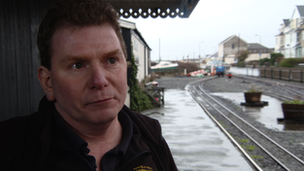
Murray Dods, who runs Fairbourne Railway, says the policy could affect house prices
A 2010 report by Natural Resources Wales' predecessor body, Environment Agency Wales, found £135m needed to be spent annually on flood and coastal defences by 2035 just to maintain the current level of risk.
Building more defences, in order to take people out of flood risk areas, would increase that spending to £170m a year by 2035, the report said.
Civil engineer Jaap Flikweert advised the US Army Corps of Engineers on safer defences for New Orleans following Hurricane Katrina, external in 2005.
He said it was important to plan ahead of potential disasters to avoid putting people's lives at risk in the future.
"If you see it coming, take the time - use the time - of a generation to make that change," he said.
Week in Week Out is on BBC One Wales, Tuesday, 11 February at 22:35 GMT
- Published11 February 2014
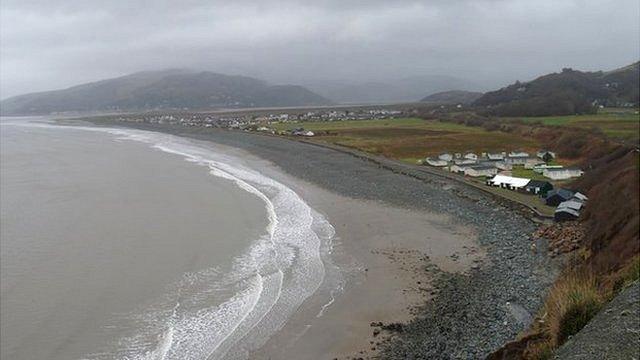
- Published11 February 2014
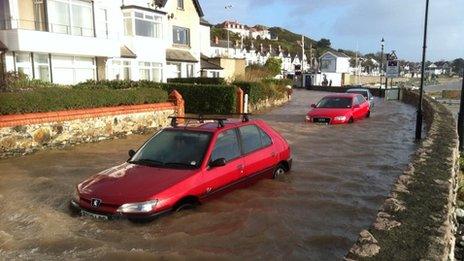
- Published28 January 2014
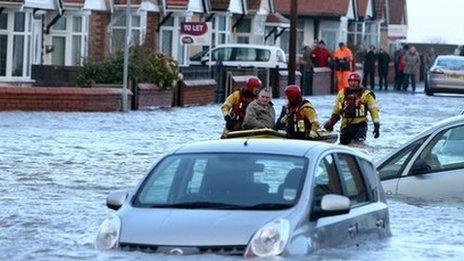
- Published10 July 2012
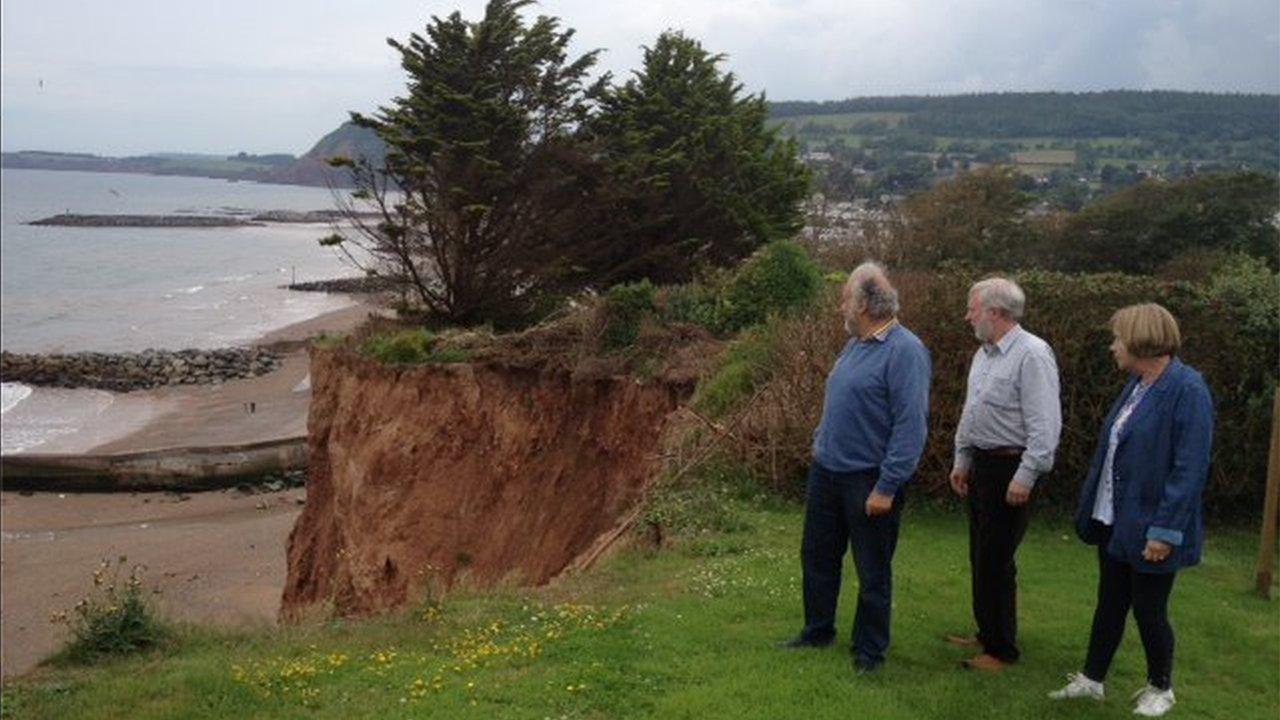
- Published22 January 2014
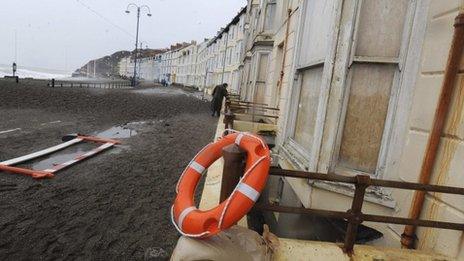
- Published4 January 2014
